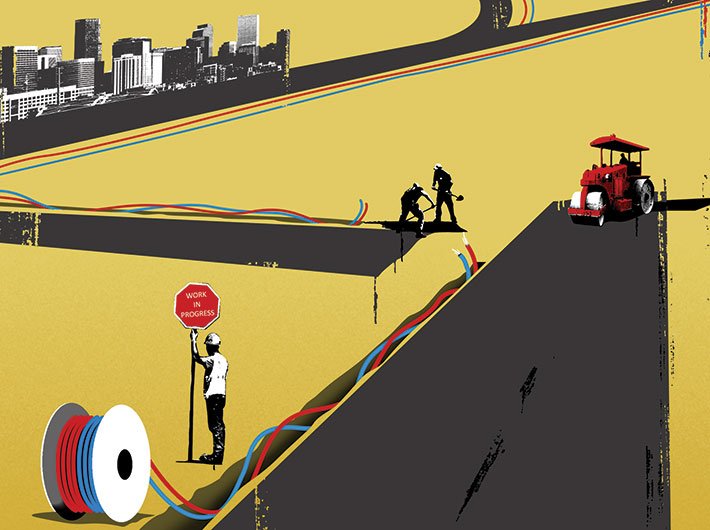There are downside pressures too, will take time to assess whether the reforms are implemented effectively: Fitch Ratings
The revival of the government’s reform agenda in response to the coronavirus pandemic shock has the potential to raise India’s medium-term growth rate, Fitch Ratings has said in a new analysis, while also taking note of downside pressures to growth and adding that it will take time to assess whether the reforms are implemented effectively.
“In recent years, the Indian authorities’ strategy to keep the public debt ratio and broader public finances under control has relied heavily on expectations of sustained rapid nominal GDP growth. The pandemic will slow medium-term growth, as we believe damaged corporate balance sheets will dampen investment for years. Renewed asset-quality challenges in banks and generally fragile liquidity for non-bank financial companies could also constrain growth prospects and jeopardise the stability of the medium-term government debt/GDP trajectory,” a post on the Fitch Wire credit market commentary page noted on Thursday. [The original article can be accessed at www.fitchratings.com.]
Raising medium-term growth rates under these circumstances will require reforms to support investment and boost productivity. The agency noted the GDP growth outlook as a key rating sensitivity when it revised the Outlook on India’s ‘BBB-’ rating to Negative from Stable in June.
Several reforms passed by parliament since the pandemic set in could lift medium-term growth prospects, it said. “The most notable are agricultural reforms to give farmers more flexibility over where to sell their produce. Stripping out middle men, as the reform allows, could improve farmer incomes while reducing consumer prices. Nevertheless, implementation risks are significant. For example, segments of the farm lobby have protested the reform, apparently over fears that it could result in the abolition of minimum support prices, although the government says this will not happen.”
The post noted the labour reforms parliament has passed. “Their intent, among other things, is to improve worker access to social security (notably in the large unorganised sector), strengthen occupational safety requirements, speed up the resolution of labour disputes and ease migrant workers’ ability to move between states. In addition, employers will now only need prior state government approval for redundancies if they have over 300 workers, up from 100 previously, and state governments may raise this threshold. These changes could support formalisation of India’s labour market and improve its flexibility, with positive efficiency gains, but our assumption is that in practice their impact will be modest.”
The government also intends to privatise some state-owned enterprises, of which more than 200 are owned by the central government and 800 by state governments, it said. “A wide-ranging privatisation push involving large SOEs could be transformative. However, it remains unclear whether the government plans to surrender its majority control. The strength of market demand for state assets is also yet to be tested.”
The post said the agency expects the central government to remain generally reform-minded over the next few years, while reforms also take place at the state level. “Some states, for example, have passed land acquisition reforms, after the central government was unable to find sufficient support on this issue for approval in India’s upper house, the Rajya Sabha, in 2015. State-level reforms will remain important, even if their impact is more geographically limited.”
The process of reform in India remains especially complex and implementation at times has proven difficult, the post said. “In recent years, the government has opened more sectors to FDI, but also raised international trade barriers and withdrawn from the Regional Comprehensive Economic Partnership before its recent agreement was secured. Meanwhile, two landmark reforms from the government’s previous term faced set-backs recently due to the pandemic. The Insolvency and Bankruptcy Code has been suspended temporarily in line with forbearance regulations for banks, while a decline in inflows from the Goods and Services Tax will make it more challenging to divide these revenues among the centre and the states.”


